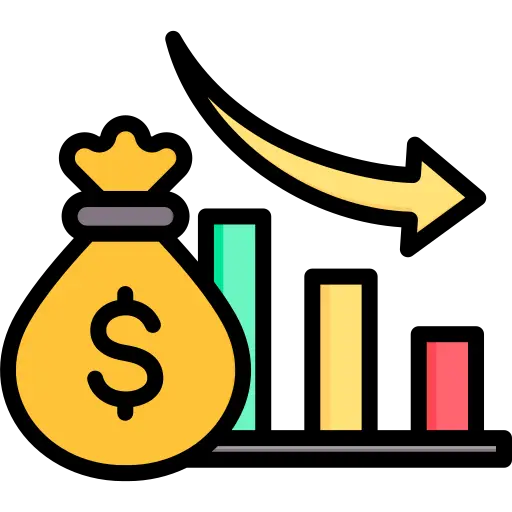Verified Insights
Precision-driven research you can trust. We uphold rigorous data validation processes to ensure every report is reliable and based on credible sources.
+91 9425150513 (Asia) support@24lifesciences.com
JINQI JIANGTANG CAPSULE MARKET INSIGHTS
Global Jinqijiangtang Capsule market was valued at USD 18.9 million in 2024. The market is projected to grow from USD 20.2 million in 2025 to USD 30.9 million by 2031, exhibiting a CAGR of 7.0% during the forecast period.
Jinqi Jiangtang Capsule is a pure Chinese herbal preparation with a demonstrated blood sugar-lowering effect. It is specifically indicated for the treatment of type 2 diabetes and is formulated using traditional Chinese medicine principles, though it is available in modern pharmaceutical formats, predominantly in capsule forms such as the 80-pill and 36-pill packs commonly found in hospital pharmacies and retail outlets.
The market expansion is primarily fueled by the rising global prevalence of diabetes, which affects hundreds of millions of people, and a growing consumer preference for natural and herbal treatment alternatives. While the market is relatively concentrated with key players like Zhejiang Tianyitang Pharmaceutical, Jilin Aodong Pharmaceutical, and Liaoning Haiyi Pharmaceutical holding a significant combined market share, continued growth is heavily dependent on further clinical validation and expansion into international markets beyond its primary base in China.
Rising Global Diabetes Prevalence
The market for Jinqijiangtang Capsule is primarily driven by the escalating global burden of diabetes. According to the International Diabetes Federation, over 537 million adults were living with diabetes in 2021, a number projected to rise to 643 million by 2030. Jinqijiangtang Capsule, as a traditional Chinese medicine formulation indicated for type 2 diabetes, is seeing increased demand as part of integrated management strategies.
Growing Preference for Natural and Herbal Therapies
There is a significant shift in patient preference towards natural and complementary medicine, particularly in Asia-Pacific regions. The capsule's formulation, derived from traditional herbs, appeals to consumers seeking treatments with perceived lower side-effect profiles compared to conventional pharmaceuticals. This trend is supported by increasing consumer awareness and spending on wellness products.
➤ Supportive Government Policies for TCM
Government initiatives in China, such as the "Healthy China 2030" plan, actively promote the integration and development of Traditional Chinese Medicine (TCM) into the national healthcare system. This provides a favorable regulatory environment and boosts the production, prescription, and market penetration of established TCM products like Jinqijiangtang Capsule.
MARKET CHALLENGES
Stringent Regulatory Hurdles in International Markets
Expanding the Jinqijiangtang Capsule market beyond its domestic base faces significant challenges due to stringent regulatory requirements in North America and Europe. These regions require rigorous clinical trial data and proof of efficacy and safety standards that often differ from TCM approval pathways, creating high barriers to entry.
Other Challenges
Intense Market Competition
The market is highly competitive, with numerous domestic and international pharmaceutical companies offering alternative anti-diabetic drugs and TCM formulations. This intensifies pricing pressures and necessitates continuous investment in marketing and differentiation.
Supply Chain Vulnerabilities for Raw Materials
The production of Jinqijiangtang Capsule relies on specific herbal ingredients. Fluctuations in the quality, availability, and cost of these raw materials, often impacted by agricultural and environmental factors, pose a consistent challenge to stable manufacturing and cost control.
Limited Awareness and Acceptance in Western Medicine Paradigms
A major restraint for the Jinqijiangtang Capsule market is the limited understanding and skepticism regarding TCM's evidence base among healthcare professionals and patients in Western medical systems. The dominance of evidence-based medicine protocols makes it difficult for TCM products to gain widespread prescription and acceptance without extensive, internationally recognized clinical validation.
Patent Expiration and Generic Competition
As patents for the formulation or production process of Jinqijiangtang Capsule expire, the market faces the threat of increased competition from generic versions. This can lead to price erosion and a reduction in market share for the originator company, restraining overall revenue growth.
Expansion into Emerging Economies
There is substantial opportunity for growth by targeting emerging economies in Southeast Asia, the Middle East, and Africa, where diabetes prevalence is rising rapidly and there is existing cultural familiarity with herbal medicine. Tailoring marketing and distribution strategies to these regions can unlock new customer bases.
Product Innovation and Combination Therapies
Opportunities exist for manufacturers to invest in research and development to create improved formulations of Jinqijiangtang Capsule, such as enhanced bioavailability versions or fixed-dose combinations with conventional drugs. Demonstrating synergistic effects through clinical studies can position the product as a valuable component of combination therapy, opening new market segments.
Leveraging E-commerce and Digital Health Platforms
The rapid growth of e-commerce and telemedicine presents a significant opportunity to increase the accessibility of Jinqijiangtang Capsule. Partnering with online pharmacies and digital health platforms can help reach a broader audience, including tech-savvy younger patients managing chronic conditions.
Segment Analysis:| Segment Category | Sub-Segments | Key Insights |
| By Type |
|
80 Pills packaging format is the dominant segment, favored for providing an optimal balance between treatment duration and patient convenience, which supports better adherence to medication regimens. This size typically aligns with a standard monthly supply, making it a practical choice for both initial prescriptions and refills, and is therefore the most widely stocked and prescribed version across distribution channels. |
| By Application |
|
Hospital and Clinic channels represent the leading application segment, as this is where initial diagnoses for Type 2 diabetes are typically made and where specialist physicians prescribe treatment plans. The credibility and professional oversight associated with these settings are crucial for introducing and managing the use of a traditional Chinese medicine like Jinqijiangtang Capsule, ensuring appropriate patient education and monitoring. |
| By End User |
|
Patients with Type 2 Diabetes constitute the primary end-user group, as Jinqijiangtang Capsule is specifically formulated as a blood sugar-lowering agent. The growing global prevalence of Type 2 diabetes, coupled with an increasing patient preference for natural and herbal treatment options with perceived fewer side effects, drives consistent demand from this core user base, making it the most significant segment. |
| By Distribution Channel |
|
Direct Sales to Hospitals is the leading distribution method, reflecting the product's prescription-driven nature and the importance of building strong relationships with healthcare professionals. Manufacturers prioritize this channel to ensure product availability at the point of prescription, provide clinical support, and facilitate bulk procurement agreements, which is fundamental for market penetration and physician endorsement. |
| By Therapeutic Positioning |
|
Adjunctive Therapy is the most prevalent therapeutic positioning for Jinqijiangtang Capsule. It is frequently used alongside conventional anti-diabetic medications to enhance overall glycemic control and potentially mitigate side effects. This complementary role is highly valued, as it aligns with integrative medicine approaches and offers a holistic management strategy for a chronic condition like diabetes, making it the dominant application in clinical practice. |
An Evolving Market Led by Established Chinese Pharmaceutical Giants
The global Jinqijiangtang Capsule market is characterized by a relatively concentrated competitive structure, dominated by a handful of established Chinese pharmaceutical manufacturers. Zhejiang Tianyitang Pharmaceutical, Jilin Aodong Pharmaceutical, and Liaoning Haiyi Pharmaceutical are recognized as the top three players, collectively holding a significant revenue share of the global market. This dominance is attributed to their strong production capabilities, established distribution networks throughout China, and historical expertise in traditional Chinese medicine (TCM) formulations. The competition is primarily based on brand reputation, manufacturing scale, and cost efficiency. The recent market growth has encouraged these leaders to focus on expanding their production capacity and enhancing their supply chain to meet rising domestic and international demand.
Beyond the top-tier players, the market includes several other significant manufacturers that hold niche positions. These companies often compete by specializing in specific regional markets or by supplying private-label products to distributors and hospitals. While their individual market shares are smaller, they collectively contribute to the overall market supply and provide competitive pricing pressures. The competitive intensity is expected to increase as the market continues its growth trajectory, potentially leading to strategic mergers, acquisitions, or partnerships as companies strive to strengthen their market positions and expand their geographic reach beyond China.
List of Key Jinqijiangtang Capsule Companies ProfiledZhejiang Tianyitang Pharmaceutical
Liaoning Haiyi Pharmaceutical
Guangzhou Baiyunshan Pharmaceutical Holdings Company Limited
China Resources Sanjiu Medical & Pharmaceutical Co., Ltd.
Shijiazhuang Yiling Pharmaceutical Co., Ltd.
Jiangsu Kanion Pharmaceutical Co., Ltd.
Guizhou Yibai Pharmaceutical Co., Ltd.
Chengdu Di'ao Pharmaceutical Group
Harbin Pharmaceutical Group
Zhangzhou Pien Tze Huang Pharmaceutical Co., Ltd.
The global Jinqijiangtang Capsule market is on a significant growth trajectory, with a valuation of $18.9 million in 2024 projected to reach $30.9 million by 2031. This represents a compound annual growth rate (CAGR) of 7.0% during the forecast period. The product, a pure Chinese herbal preparation known for its efficacy in lowering blood sugar, is gaining increased adoption as diabetes becomes a more prominent global health concern. The primary driver for this market expansion is the growing patient population seeking alternative or complementary treatments for diabetes management, particularly in regions with a strong tradition of herbal medicine.
Other TrendsProduct Type and Application Segmentation
The market is segmented by product type and application, revealing key consumption patterns. The 80 Pills packaging segment is projected to show significant growth in the coming years. In terms of distribution channels, sales are split between Hospitals and Clinics and Pharmacies, with pharmacies representing a major point of access for patients. This segmentation allows manufacturers to tailor their marketing and distribution strategies to different consumer behaviors and healthcare delivery models.
Geographical Market Expansion
Geographically, the market is expanding beyond its traditional base. While China remains a critical and substantial market, the United States represents a significant and growing market size as of 2024. Growth is also anticipated in other regions, including Europe and parts of Asia, as awareness of Traditional Chinese Medicine increases globally. This geographical diversification points to a broadening acceptance of Jinqijiangtang Capsules as a viable therapeutic option in diverse healthcare systems.
The competitive landscape is concentrated, with the global top five manufacturers holding a significant combined market share in terms of revenue as of 2024. Key players shaping the market include Zhejiang Tianyitang Pharmaceutical, Jilin Aodong Pharmaceutical, and Liaoning Haiyi Pharmaceutical. The market's competitive dynamics are influenced by factors such as manufacturing capabilities, distribution networks, and ongoing research and development efforts to validate and potentially expand the product's applications. This consolidation suggests an industry where established players with strong brand recognition and regulatory expertise hold a distinct advantage.
Regional Analysis: Jinqijiangtang Capsule MarketNorth America
The North American market for Jinqijiangtang Capsules is nascent but shows potential for growth within the complementary and alternative medicine segment. Awareness and acceptance are primarily confined to immigrant communities and integrative medicine practitioners. The regulatory pathway is a major hurdle, requiring approval from bodies like the FDA, which involves demonstrating safety and efficacy through rigorous clinical trials a significant challenge for a multi-component TCM formula. Market access is currently limited to niche channels such as specialty health food stores, online retailers, and select integrative health clinics. Growth is driven by increasing interest in natural remedies and a growing diabetic population open to holistic approaches, though it remains a minor segment compared to conventional pharmaceutical options.
Europe
Europe represents a slowly emerging market for Jinqijiangtang Capsules, with interest concentrated in countries like Germany and the United Kingdom known for their openness to herbal medicines. Regulatory acceptance varies widely across the EU, with most nations classifying it as a herbal medicinal product, requiring registration and proof of traditional use. The market is characterized by a high level of consumer caution and a demand for scientific validation. Distribution is almost exclusively through specialized health stores, pharmacies stocking complementary medicines, and online platforms. Growth is limited by stringent regulations, competition from established European herbal products, and a general lack of mainstream medical endorsement, making it a market for long-term, patient development.
South America
The South American market for Jinqijiangtang Capsules is currently very limited. There is minimal awareness of Traditional Chinese Medicine outside of small, specific communities in major urban centers. Regulatory frameworks are generally not adapted for the approval of complex TCM formulas, posing a significant barrier to entry. Any presence is largely informal, through small-scale imports targeting niche ethnic markets or alternative therapy practitioners. The primary challenge is building foundational awareness and navigating underdeveloped regulatory pathways for herbal products. Economic volatility in several countries also limits the potential for market investment and growth in the near term.
Middle East & Africa
This region presents the smallest market presence for Jinqijiangtang Capsules. Awareness is extremely low, and regulatory environments are often not conducive to the registration of TCM products. Market activity, if any, is sporadic and confined to expatriate Chinese communities or a handful of alternative medicine clinics in wealthier Gulf nations. Significant cultural, regulatory, and infrastructural barriers hinder market development. Growth potential is considered long-term, dependent on broader economic development, increased cultural exchange, and the establishment of clear regulatory guidelines for traditional and herbal medicines across the diverse countries in the region.
This market research report offers a holistic overview of global and regional markets for the forecast period 2025–2031. It presents accurate and actionable insights based on a blend of primary and secondary research.
✅ Market Overview
Global and regional market size (historical & forecast)
Growth trends and value/volume projections
✅ Segmentation Analysis
By product type (80 Pills, 36 Pills, Others)
By application (Hospital and Clinic, Pharmacy)
✅ Regional Insights
North America, Europe, Asia-Pacific, Latin America, Middle East & Africa
Country-level data for key markets
✅ Competitive Landscape
Company profiles and market share analysis
Key strategies: M&A, partnerships, expansions
Product portfolio and pricing strategies
✅ Technology & Innovation
Emerging herbal medicine technologies
Quality control and standardization initiatives
✅ Market Dynamics
Key drivers supporting market growth
Restraints and potential risk factors
Regulatory trends and challenges
✅ Opportunities & Recommendations
High-growth segments
International expansion opportunities
Strategic suggestions for stakeholders
✅ Stakeholder Insights
This report is designed to support strategic decision-making for a wide range of stakeholders, including:
Pharmaceutical companies
Traditional Chinese medicine manufacturers
Healthcare providers and hospitals
Distributors and retailers
Investors and industry analysts
-> Global Jinqijiangtang Capsule market was valued at USD 18.9 million in 2024 and is expected to reach USD 30.9 million by 2031, growing at a CAGR of 7.0%.
-> Key players include Zhejiang Tianyitang Pharmaceutical, Jilin Aodong Pharmaceutical, and Liaoning Haiyi Pharmaceutical.
-> Key growth drivers include rising diabetes prevalence and growing preference for herbal treatments.
-> Asia-Pacific is the dominant market, with China being the primary consumer.
-> Main product types include 80 Pills and 36 Pills capsule formats.
Our Clients
“The data provided by 24LifeScience was clear, well-organized, and useful for internal strategy planning. It helped us understand the competitive landscape more effectively.”
“We used one of their market overview reports for early-stage feasibility work. It gave us a helpful snapshot of current trends and key players in our therapeutic area.”
“I appreciated the team’s responsiveness and willingness to adjust the scope based on our feedback. The final report was aligned with our expectations and timelines.”
“Their custom report on clinical trial trends was a helpful reference as we explored new indications."
“As someone working on early product planning, I found their therapeutic area briefs quite useful. The information was presented in a way that made it easy to extract key takeaways.”
“We didn’t need anything overly complex—just solid, dependable data. 24LifeScience delivered exactly that, without unnecessary fluff.”
“Their reports gave us a good foundation to start our own market assessment. While we supplemented it with other data, this was a great starting point.”
“I’ve used a few of their reports for academic and grant writing purposes. They’re generally well-cited and reliable for understanding market scope.”
At 24LifeScience, we combine domain expertise with dependable research delivery. What truly differentiates us isn't just what we do — it's how we do it. Our clients trust us because we offer consistency, security, value, and most importantly, insight that drives action.

Precision-driven research you can trust. We uphold rigorous data validation processes to ensure every report is reliable and based on credible sources.

We uphold rigorous data validation processes to ensure every report is reliable, up-to-date, and based on credible sources.

24LifeScience powers research for top firms in 20+ nations.Chosen by leading life sciences companies worldwide.

We offer competitive pricing models that align with your project scope — no hidden charges, no lock-in. Tailored pricing for every scale and need.

8–10+ years of life sciences expertise turned into strategic insights.We don’t just summarize data we contextualize it.

Whether it's a ready-made report or a custom project, we deliver within the promised timeline With real-time updates